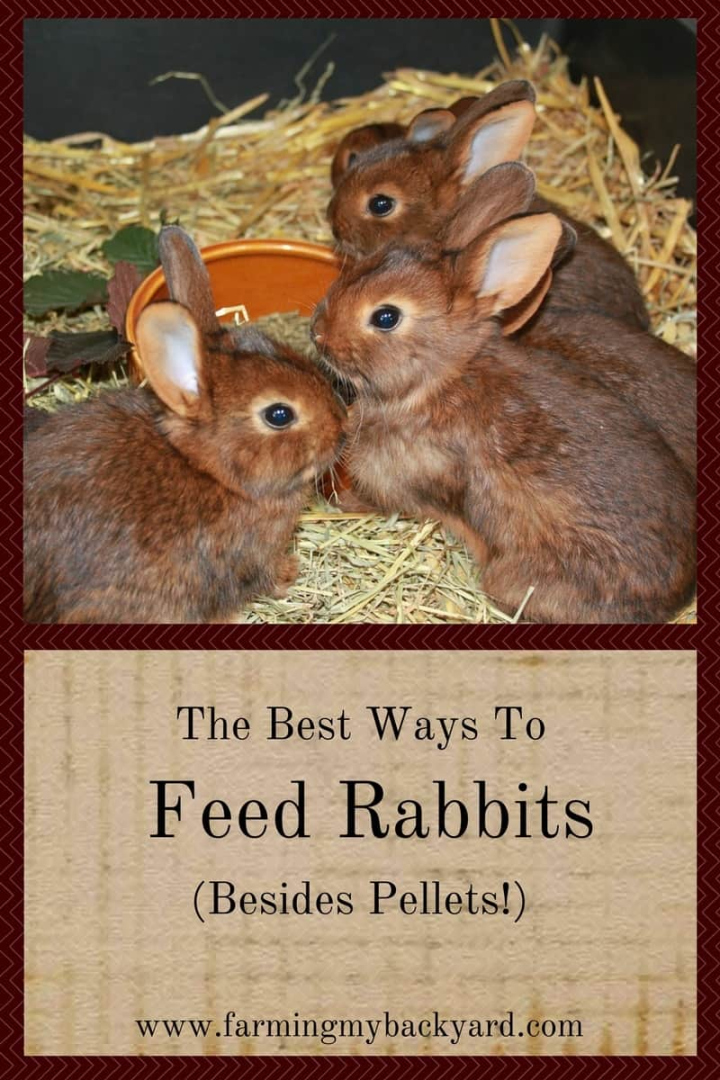What Can You Feed Rabbits Besides Pellets?
Rabbits are herbivores and require a diet that is rich in fiber to maintain their digestive health. While pellets are a common choice for many rabbit owners, they should not be the only source of nutrition for these furry friends. A varied diet that includes hay, fresh vegetables, fruits, and occasional treats can provide the necessary nutrients for your rabbit’s overall well-being. Let’s explore some alternatives to pellets that can keep your rabbit happy and healthy.

1. Hay
Hay is an essential part of a rabbit’s diet as it provides the necessary fiber for their digestive system. Timothy hay is commonly recommended for adult rabbits, while alfalfa hay is suitable for young bunnies and pregnant or nursing rabbits due to its higher protein and calcium content. Make sure to provide fresh and good-quality hay daily.
2. Fresh Vegetables
Fresh vegetables are a great source of vitamins and minerals for rabbits. Leafy greens like romaine lettuce, spinach, kale, and herbs such as parsley and cilantro are excellent choices. However, avoid giving your rabbit lettuce varieties like iceberg lettuce since they have limited nutritional value. Introduce new vegetables gradually and watch for any signs of digestive upset.
3. Fruits
Although fruits should be given in moderation due to their sugar content, they can be a tasty and nutritious addition to your rabbit’s diet. Safe fruits for rabbits include apples (without seeds), bananas, strawberries, blueberries, and raspberries. Remember to remove any seeds, pits, or stems as they can be harmful to your rabbit.
4. Occasional Treats
Rabbits enjoy the occasional treat, but it’s important to choose wisely and limit their intake. Treats such as carrot tops, small pieces of carrot, or a slice of apple can be offered as rewards during training or as special indulgences. Avoid sugary treats, processed snacks, and foods that are high in fat as they can lead to weight gain and other health issues.
5. Herbs
Herbs not only add flavor to your rabbit’s diet but also provide additional health benefits. Dandelion greens, chamomile, mint, and basil are some herbs that rabbits can safely consume. However, ensure that the herbs are free from pesticides or any other harmful chemicals before offering them to your pet.
FAQs
1. Can rabbits eat bread?
Bread is not suitable for rabbits as it is high in carbohydrates and lacks the necessary fiber. Feeding bread to rabbits can lead to digestive issues and obesity. It’s best to stick to their natural diet of hay, vegetables, and fruits.
2. Should rabbits eat pellets at all?
Pellets can be a convenient option to provide your rabbit with balanced nutrition, especially if you have difficulty sourcing fresh produce or hay. However, pellets should not be the sole component of their diet. Hay should always be the primary food source, with pellets used to supplement their fiber intake.
3. How much hay should I feed my rabbit?
A rabbit should have access to unlimited fresh hay throughout the day. It should make up around 80% of their diet. Make sure to choose good-quality hay that is free from dust or mold.
4. Can rabbits eat all vegetables?
Not all vegetables are safe for rabbits. Some vegetables, such as onions, garlic, potatoes, and rhubarb, can be toxic to rabbits. It’s important to research or consult with a veterinarian to ensure the vegetables you offer are safe for your furry friend.
By diversifying your rabbit’s diet and including a range of healthy options, you can provide them with a well-rounded nutritional plan. Remember to introduce new foods gradually and monitor your rabbit’s response to ensure they are enjoying a balanced and healthy diet.
Related Articles…
Copyright Notice:
This website utilizes images found online, all copyrights are retained by their original owners. If you would like an image removed, kindly contact us.